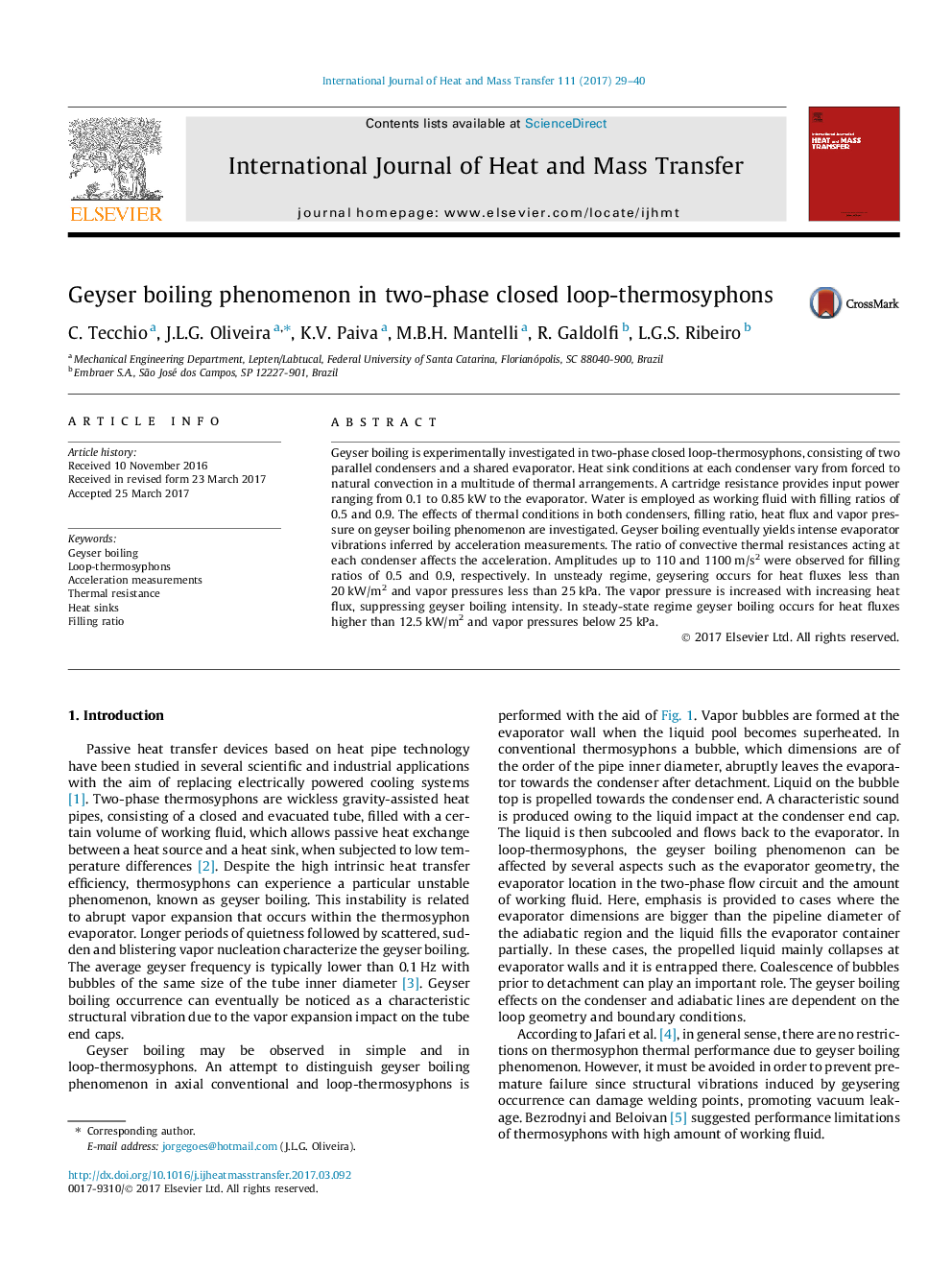| Article ID | Journal | Published Year | Pages | File Type |
|---|---|---|---|---|
| 4994054 | International Journal of Heat and Mass Transfer | 2017 | 12 Pages |
Abstract
Geyser boiling is experimentally investigated in two-phase closed loop-thermosyphons, consisting of two parallel condensers and a shared evaporator. Heat sink conditions at each condenser vary from forced to natural convection in a multitude of thermal arrangements. A cartridge resistance provides input power ranging from 0.1 to 0.85Â kW to the evaporator. Water is employed as working fluid with filling ratios of 0.5 and 0.9. The effects of thermal conditions in both condensers, filling ratio, heat flux and vapor pressure on geyser boiling phenomenon are investigated. Geyser boiling eventually yields intense evaporator vibrations inferred by acceleration measurements. The ratio of convective thermal resistances acting at each condenser affects the acceleration. Amplitudes up to 110 and 1100Â m/s2 were observed for filling ratios of 0.5 and 0.9, respectively. In unsteady regime, geysering occurs for heat fluxes less than 20Â kW/m2 and vapor pressures less than 25Â kPa. The vapor pressure is increased with increasing heat flux, suppressing geyser boiling intensity. In steady-state regime geyser boiling occurs for heat fluxes higher than 12.5Â kW/m2 and vapor pressures below 25Â kPa.
Related Topics
Physical Sciences and Engineering
Chemical Engineering
Fluid Flow and Transfer Processes
Authors
C. Tecchio, J.L.G. Oliveira, K.V. Paiva, M.B.H. Mantelli, R. Galdolfi, L.G.S. Ribeiro,
